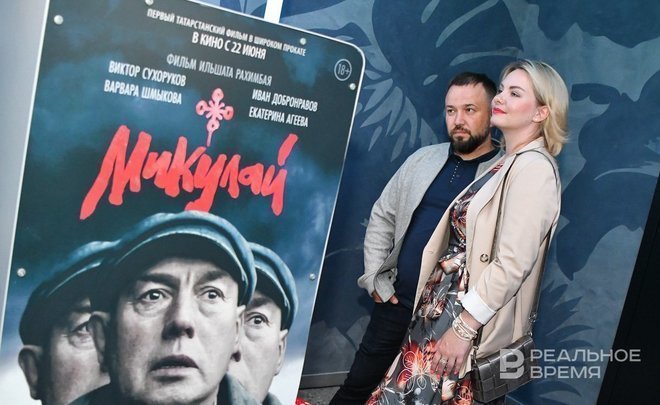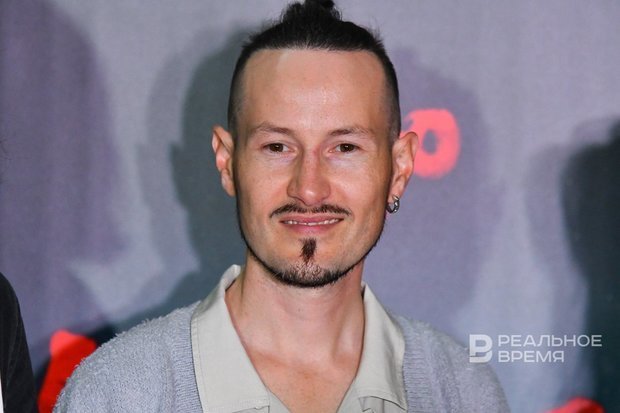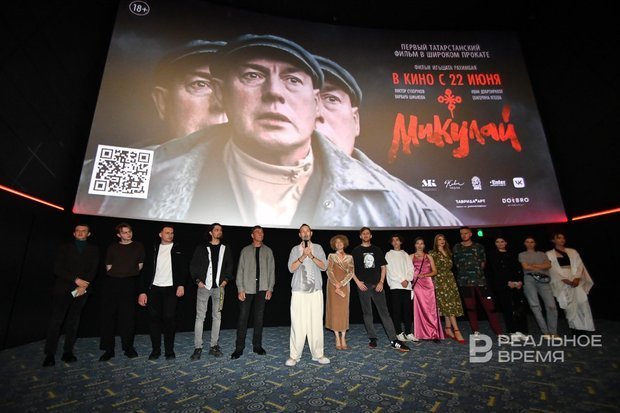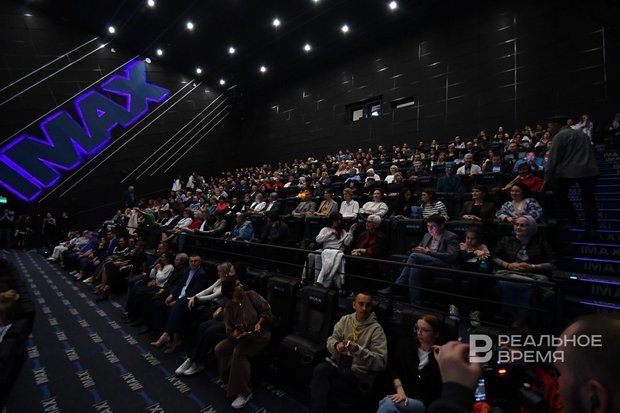From 70k and above: who raise money on crowdfunding platforms
What Tatarstan projects in the fields of science, art, environment, and social security have been implemented with the help of crowdsourcing

The debut full-length film by Tatarstan director Ilshat Rakhimbay, a handbook for foster parents A Cure for Despondency and even the social project 20 Important Things of the Zenit-Kazan volleyball club have been released with money raised through crowdfunding. “While shooting the film Mikulay, I was always in debt. Before the start of the editing, I decided to play it safe — I opened funding on the crowdfunding platform," the director told Realnoe Vremya, who eventually collected 1,5 million rubles for the post-production of the film. Meanwhile, Tatarstan initiators of projects are still timidly resorting to this method, since they are not used to attracting private funds.
How the film Mikulay was shot
Tatarstan's cultural and social projects are increasingly finding support across the country thanks to crowdfunding — this is a way to support various projects. With the help of crowdfunding, authors raise funds for their ideas, and participants can contribute to the author's initiative and receive non-financial remuneration for it.
“If people don't respond to the funding, then you need to honestly admit to yourself — you need your project more than people," warns young Tatarstan director Ilshat Rakhimbay. A year ago, he shot his first full-length film Mikulay on his own and credit resources, spending several million rubles. In fact, it was almost an altruistic project, since he could not count on income before the start of mass distribution of the film, could not predict how it would 'take off', while debts were growing like a snowball. In search of sources of repayment of bank loans, he tried various ways to raise funds, including through crowdfunding platforms. And he came to the conclusion that it is interesting as a backup insurance option, but for small amounts:
“All this time (in the process of preparing the film), I was seriously in the red. We lacked a lot of money — it is a full-length film, after all, its budget is over 20 million rubles," Ilshat Rakhimbay told Realnoe Vremya. “At the final stage of film editing, he went to large crowdfunding platform Planeta.ru, specialising in art and social projects. I put up a project on the platform with a collection of 800 thousand rubles. I could have asked for 5 million rubles, but you can fail to raise them and leave with nothing. It is too reckless to count on such amounts, since the platform dictates its own rules.”

The funder (the one who opens the funding — editor's note) receives the entire amount if he collects at least 50% of the amount declared at the start. But if the threshold of 50% is not overcome, all transfers are returned to the participants. “In my opinion, requesting 5 million rubles at once means to frighten those who are ready to help. It is clear that he will support 100-500 rubles, but the entire amount will still not be raised. It is necessary to look soberly at the possibilities of people. Sometimes it is impossible to raise half of the amount in a short time without having federal marketers," the director believes. By that time, Ilshat Rakhimbay had become, one might say, an experienced funder. For the first time, he entered the crowdfunding platform for the release of a short film, collecting 300 thousand rubles.
By choosing a simplified version, Ilshat Rakhimbay coped with the task. According to him, within three months he managed to raise 100% of the amount declared on the platform. The same amount was received directly from private sponsors. As a result, 1,5 million rubles were transferred through two channels, he said. The funds raised were used for post-production, i.e. to complete the film editing.
More than 500 people supported Mikulay
For comparison: last year, the average amount of support was 500 rubles, and the maximum collection for the project were a maximum of 700-800 thousand rubles. The film became a record-holder for collections among projects in Tatarstan. More than 500 people supported it with their money. About 100 of them received invitations to the premiere as a reward for their support within the campaign. According to the director, people responded, first of all, to the great art, supported the play of their favourite actors. “Yes, this film touches on ethnographic themes, the problem of small nations, everyone can find their own. But first of all, this is a feature film, this is a great performance by actor Viktor Sukhorukov.”
It is always difficult for a young director to find money to shoot a film, so many resort to crowdfunding. Could it not have been done the opposite: first to raise money, and then to make a film? “No," he is sure. “It is impossible to attract funds for beautiful pictures and promises.”

But there is a huge plus here, the young director believes. “Can I check whether people need your project in principle? As the author of the film, you immediately get feedback — is it interesting or not? If there are no receipts, you immediately wonder — are you going right?" he argues. Then he managed to attract financing from private investors and government agencies.
The premiere of the film Mikulay took place in Kazan on June 22. Its first viewers were those who received invitations as part of a crowd campaign on Planeta.ru, where the training camp took place. For the first time, the concept of the film was presented at the art forum Tavrida. It was produced by JANLI FILM company. At the post-production stage, the Moscow film company Do it Bro production of Anna Dobronravova joined.

“A cure for despondency” — in every rural library
A mother with many children with adopted children from Bolgar, Elena Yankovskaya, came to the crowdfunding platform for the publication of the book A Cure for Despondency. On June 8, she launched a collection of 70 thousand rubles, collecting the entire amount long before the deadline (there are still 87 days left). According to Elena's calculations, this money should be enough to print a kind of manual for foster parents of Tatarstan in the printing house of the Academy of Sciences of the Republic of Tatarstan:
“For many years now, I have been collecting happy stories of people who found joy in adopting an orphan or raising a disabled child. A total of 54 stories of real foster parents have been collected. Some of them agreed to the disclosure of the name, the publication of photos. Using concrete examples, the book describes how the process of adoption and adaptation of a child in a new family develops. There are also three stories from the children themselves who grew up in foster homes. I tried to convey their moods, explain their behaviour. There is also a poignant story of leaving the family of a teenager who returned to an orphanage. Before that, I posted short stories in the chat of foster parents, which caused a lot of comments. In the end, it was understood that people really like all these stories and sometimes they even heal from depression.”
Therefore, Elena decided that it was necessary to publish the book A Cure for Despondency and give it to graduates of foster parents' schools of the Republic of Tatarstan. After all, these people are just thinking about accepting an orphan child into their family, so they need tips from the life of real foster parents, she believes.
She guessed by chance where to get the money to publish the book. Her son buys educational literature, which is published with funds collected on a crowdfunding platform. Therefore, Elena Yankovskaya decided to repeat the experience of these authors. So far, the circulation is small — only 300 copies. “This is very small, because there are 6-7 thousand such families in the republic. After the publication of the pilot series, we want to go back to the platform and increase the circulation. It is necessary that every rural library has such a manual," she dreams.
“Let's keep the Tatar newspaper in Samara Oblast”
Editor-in-chief of the Samara Tatar-language weekly newspaper Berdemlek (Unity) and the quarterly magazine Samar Tatarlary (Samara Tatars) Daniyar Sayfiev is looking for funds to save national publications. Every year, 3 million rubles are required for their publication, and he receives subsidies from the budget for 650 thousand rubles. In January of this year, he announced a collection of 500 thousand, but so far only 17% have been received. Most likely, he will not be able to collect the entire amount in the remaining 38 days, which means he cannot count on help.
Berdemlek (Unity) is the oldest national newspaper of Samara Oblast, published since 1990. Its circulation is 2 thousand copies, although about 140 thousand Tatars live in the region. “All these years, our publication has been writing the history of the Samara Tatars, preserving the traditions and language of its people, at the same time, promoting interethnic tolerance and good neighbourliness. The publication pays special attention to social, religious and cultural topics. The focus is on the fate of ordinary people of different professions. Workers of education, medicine, rural workers are the main characters of the newspaper. National holidays, customs and traditions, education, activities of national societies of the region are also reflected on the pages of our print edition," Sayfiev said.
Berdemlek newspaper, like the Samara Cathedral Mosque and the only Tatar school in Samara Yaktylyk, is of great importance, he believes.

People choose projects with a clear effect
Crowdfunding in the regions is still exotic, but those who have learned to use this tool are entering the platforms more and more consciously. “This is a way of collective financing of projects, in which funds for the creation of a new product come from its end users. The author of a crowd project can raise funds for the implementation of the idea and assess its relevance in advance, and the participant can contribute to the author's initiative and receive remuneration for it," explains the founder and co-founder of the crowdfunding platform Planeta.ru, Fyodor Murachkovsky. According to the platform, the number of initiators of crowd projects from Tatarstan remains approximately stable, but this year there are prerequisites for the growth of participants. Last year, 13 projects were launched from the republic to this platform, and this year — eight have already submitted. “Only successful projects that have collected the necessary amount of funds to launch are taken into account here," said Fyodor Murachkovsky. “It is quite possible that there are much more of them, since this figure does not include authors from Tatarstan, who put 'Russia' as the place of implementation of the project instead of the name of the region 'Tatarstan'.
According to experts, the success of funding directly depends on how much the idea itself seemed interesting and useful to the participants, how much they understand the specific result of the support. A few years ago, Zenit-Kazan volleyball club entered the platform to find money for the social project "20 Important Things”, among which there was the support of wheelchair volleyball players. They collected all the declared amount, as people saw the need to help the athletes. Moreover, this Kazan project became one of the winners of the special project and received additional funding.